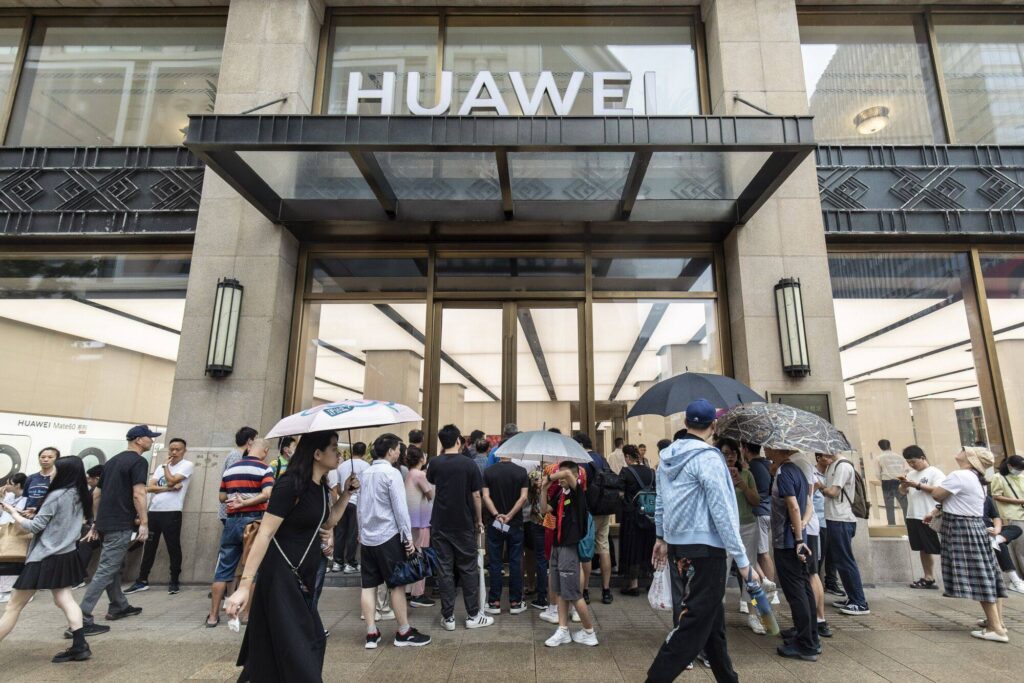Amidst export curbs imposed by the US on Nvidia’s advanced processors, Huawei Technologies has emerged as a significant supplier of AI chips in China, according to industry insiders. The Chinese company’s self-developed 910B Ascend chips have gained widespread adoption in various industries across the country, primarily through the use of “AI boxes.” These AI boxes are all-in-one machines that combine Huawei’s AI chips with industry-specific algorithms and pre-trained large AI models.
Huawei’s Ascend chips have rapidly gained popularity, challenging the dominance of Nvidia in the Chinese market. The export restrictions imposed by the US prompted Nvidia to design lower-grade chips tailored for Chinese clients. However, the onslaught of Huawei’s Ascend chips has proven challenging for Nvidia, particularly in its third-largest market, China. CEO Jensen Huang acknowledged the increased competition, highlighting the company’s need to adapt to the changing market dynamics.
Despite the absence of specific sales figures, Huawei’s Ascend ecosystem has witnessed significant growth, with 40 hardware partners, 1,600 software partners, and 2,900 AI application solutions. This growth underscores Huawei’s increasing influence in the AI chip market in China, positioning the company to capitalize on the growing demand for AI computing capabilities across various sectors.
The adoption of Huawei’s chips in AI boxes has become widespread, with Chinese companies leveraging these solutions to meet the rising demand for AI computing in telecommunications, finance, healthcare, and other industries. The AI boxes offer ready-to-use solutions, enabling organizations to streamline operations and optimize AI-based services without the need for extensive development efforts.
The expansion of Huawei’s AI chip business aligns with analysts’ predictions, who anticipate local players, led by Huawei, to dominate the AI box market in China. While Nvidia’s processors accounted for 90% of the AI chips sold in China in the first half of last year, the tide is turning in favor of Huawei, with an increasing number of Chinese companies opting for AI boxes equipped with Huawei chips.
However, the pace of Huawei’s ascendancy in China’s AI chip market will depend on its ability to scale up production and address manufacturing challenges. Producing high-performance AI accelerators and server processors presents significant complexities compared to manufacturing system-on-a-chip products for handsets.
Overall, Huawei’s growing presence in China’s AI chip market underscores the evolving dynamics of the global semiconductor industry and the increasing competitiveness among major players. As Huawei continues to expand its footprint in AI chip manufacturing, the industry landscape is likely to witness further transformations in the coming years, shaping the future of AI technology and its applications.
The genesis of Huawei’s ascendancy can be traced back to the export curbs imposed by the United States on Nvidia’s advanced processors. These restrictions, implemented in response to escalating trade tensions between the US and China, prompted Nvidia to recalibrate its market strategy. In a bid to circumvent the export restrictions, Nvidia designed lower-grade chips tailored specifically for the Chinese market. However, the efficacy of this strategy was called into question with the rapid proliferation of Huawei’s Ascend chips.
Huawei’s Ascend chips have become integral components of AI boxes, innovative all-in-one machines that amalgamate Huawei’s AI chips with industry-specific algorithms and pre-trained AI models. These AI boxes have garnered significant traction across various sectors in China, ranging from telecommunications and finance to healthcare. The allure of Huawei’s chips lies in their versatility and performance, offering organizations a ready-to-use solution to address their AI computing needs.
The burgeoning popularity of Huawei’s Ascend chips has posed a formidable challenge to Nvidia’s dominance in China’s AI chip market. Despite Nvidia’s efforts to tailor its processors for the Chinese clientele, Huawei’s ascendancy has been marked by a surge in demand for its chips. This shift in market dynamics has prompted Nvidia to acknowledge the heightened competition in China, signaling a paradigm shift in the semiconductor landscape.
If you like the article please follow on THE UBJ.
